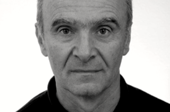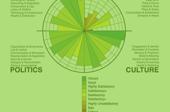
Section of physical planning
Kolegiji
The Section of Physical Planning runs study courses thematically linked with the scientific branch of ‘Urban and Physical Planning’, scientific research in physical and landscape planning and international scientific cooperation and collaboration with professional organisations and government institutions in the Republic of Croatia and abroad.
Courses run by the Section of Spatial Planning, Fundamentals of Spatial Planning and Legislation and Landscape Planning, include thematic issues related to the field of spatial planning and environmental protection at a regional and broader local level. Other courses run by the office include: Spatial Planning, Spatial Planning – Nature and Environment Protection, Spatial Planning Workshop, Regional Planning, Tourism in Urban and Regional Planning, Urban Aspects of Traffic, Landscape Design and Planning (Faculty of Forestry, University of Zagreb) and Introduction to Spatial Planning (Faculty of Forestry and Natural Sciences and Mathematics, University of Zagreb).
The aim of the study course is to develop skills in planning and land protection and to encourage focused research within this field. The concept of the courses is based on the mastering of theoretical and empirical knowledge and especially the conditions for their successful application within a physical, social and temporal context. The courses highlight the importance of understanding transnational and national changes in regional development processes and the conditions of environmental protection. The conditions for structural changes within the system of spatial planning in Croatia is investigated in terms of changes in social relations, usage of space and dynamics of development and in view of expected changes brought about by Croatia’s joining the European Union. New methods of planning that unavoidably apply modern technology support – computer support are included in education and research.
Topics from the field of physical planning are explored during courses according to the principle: sustainable development planning, rational usage and protection of space, harmonisation of interests of different users in space, the establishment of a spatial information system, environmental protection, natural and cultural heritage and provisions for better living conditions. The selected topics and issues are determined through the active participation of the user of the space and research results are presented in the form of realistic proposals for spatial solutions. In recent years topics and proposals for physical planning solutions for the administrative areas of a number of cities and municipalities have been prepared in cooperation with representatives of local administrative units.
Topics concerning environmental protection were explored in the classroom and were focused on the following problems and issues: the conditioning of environmental protection in view of needs and perspectives of development; regulation compliance of the Sustainable Development Strategy of Croatia and the Strategy Action Plan for the protection of biological and landscape diversity of Croatia, feasibility of implementation of regulations concerning Environmental Protection within the strategy for spatial development in the Republic of Croatia, etc.
Education is mainly based on work done at workshops at which the set topics were explored through practical courses, and proposals were commented at the level of study groups. Results of this work were presented in the form of an exhibition of all student work and a detailed presentation of selected works. The focus of student work was on introducing conditions governing space pertinent to the development and protection of the environment at a trans-regional and regional level, as well as the success of spatial planning and design based on efficient and corresponding legal documents.
The method applied for student assignments complies with professional procedures for the establishment of spatial planning documentation – with a critical re-evaluation concerning the method so that it complies with international professional and scientific achievements. The best papers were presented by students in public before representatives of local authorities and residents at exhibitions and discussions to mark the occasion. In this way the preferred method of decision-making and passing of spatial planning documents are simulated and proposals for software solutions become a contributing factor to deliberations on the development of the explored cities and municipalities.
This method of education allows the topics to be researched under real conditions within a particular spatial, temporal and social context. Critical departure from recent planning practice is achieved by the application of new theoretical insights that encourage the improvement of a professional approach and upgrade the existing legal regulations through proposals. Special attention is paid to clarifications and proposals for the improvement of the system of spatial planning in the Republic of Croatia, to comments and clarification of the legal side to spatial planning and to proposals including expert regulations as the starting point for establishing spatial order.
Courses run by the Section of Spatial Planning, Fundamentals of Spatial Planning and Legislation and Landscape Planning, include thematic issues related to the field of spatial planning and environmental protection at a regional and broader local level. Other courses run by the office include: Spatial Planning, Spatial Planning – Nature and Environment Protection, Spatial Planning Workshop, Regional Planning, Tourism in Urban and Regional Planning, Urban Aspects of Traffic, Landscape Design and Planning (Faculty of Forestry, University of Zagreb) and Introduction to Spatial Planning (Faculty of Forestry and Natural Sciences and Mathematics, University of Zagreb).
The aim of the study course is to develop skills in planning and land protection and to encourage focused research within this field. The concept of the courses is based on the mastering of theoretical and empirical knowledge and especially the conditions for their successful application within a physical, social and temporal context. The courses highlight the importance of understanding transnational and national changes in regional development processes and the conditions of environmental protection. The conditions for structural changes within the system of spatial planning in Croatia is investigated in terms of changes in social relations, usage of space and dynamics of development and in view of expected changes brought about by Croatia’s joining the European Union. New methods of planning that unavoidably apply modern technology support – computer support are included in education and research.
Topics from the field of physical planning are explored during courses according to the principle: sustainable development planning, rational usage and protection of space, harmonisation of interests of different users in space, the establishment of a spatial information system, environmental protection, natural and cultural heritage and provisions for better living conditions. The selected topics and issues are determined through the active participation of the user of the space and research results are presented in the form of realistic proposals for spatial solutions. In recent years topics and proposals for physical planning solutions for the administrative areas of a number of cities and municipalities have been prepared in cooperation with representatives of local administrative units.
Topics concerning environmental protection were explored in the classroom and were focused on the following problems and issues: the conditioning of environmental protection in view of needs and perspectives of development; regulation compliance of the Sustainable Development Strategy of Croatia and the Strategy Action Plan for the protection of biological and landscape diversity of Croatia, feasibility of implementation of regulations concerning Environmental Protection within the strategy for spatial development in the Republic of Croatia, etc.
Education is mainly based on work done at workshops at which the set topics were explored through practical courses, and proposals were commented at the level of study groups. Results of this work were presented in the form of an exhibition of all student work and a detailed presentation of selected works. The focus of student work was on introducing conditions governing space pertinent to the development and protection of the environment at a trans-regional and regional level, as well as the success of spatial planning and design based on efficient and corresponding legal documents.
The method applied for student assignments complies with professional procedures for the establishment of spatial planning documentation – with a critical re-evaluation concerning the method so that it complies with international professional and scientific achievements. The best papers were presented by students in public before representatives of local authorities and residents at exhibitions and discussions to mark the occasion. In this way the preferred method of decision-making and passing of spatial planning documents are simulated and proposals for software solutions become a contributing factor to deliberations on the development of the explored cities and municipalities.
This method of education allows the topics to be researched under real conditions within a particular spatial, temporal and social context. Critical departure from recent planning practice is achieved by the application of new theoretical insights that encourage the improvement of a professional approach and upgrade the existing legal regulations through proposals. Special attention is paid to clarifications and proposals for the improvement of the system of spatial planning in the Republic of Croatia, to comments and clarification of the legal side to spatial planning and to proposals including expert regulations as the starting point for establishing spatial order.
















































.jpg)

.jpg)


















